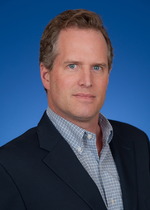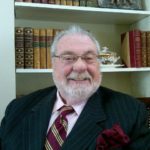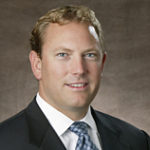
Bob has a really thoughtful and complete sense of the person with whom he’s working. He engaged with my team, too. It wasn’t just a one-on-one relationship but more like a bicycle wheel with hub and spokes.
Matt Fawcett
When did you meet Bob?
I met Bob decades and decades ago because he was a family friend. He’s known me since I was a child.
Bob has been very helpful in counseling me to pause and take advantage of silence, and not always feel the need to fill spaces with my voice. When you put that idea into practice you can see how it pays off very quickly.
When did you start working together?
That was in about 2014, 2015 maybe 2016.
How has he helped you build a winning team?
Bob spends a lot of time thinking about the characteristics and traits of the individual with whom he works and that helps him provide guidance to the kind of team that’s likely to be successful with that leader. He has a really thoughtful and complete sense of the person with whom he’s working. And the other is he engaged with my team, too. It wasn’t just a one-on-one relationship but more like a bicycle wheel with hub and spokes.
The characteristics of leaders can be very different but the one aspect that is consistent and had been overlooked for a long time was the nature of authenticity. Bob was one of the early advocates of authenticity, and that if you don’t operate from a base of self-knowledge, your actions may not be consistent and the desired results may not be there.
What are the most valuable aspects of his coaching?
With respect to me and my own individual tendencies and characteristics, he’s been really helpful in counseling me to pause and take advantage of silence, and not always feel the need to fill spaces with my voice, so to speak and when you put that idea into practice you can really see how it pays off very quickly. It’s quite interesting.
There’s a common misconception among people that the people who are the leaders are expected to do the most talking and have the most answers, and in fact. oftentimes it’s the ones doing the most listening and asking the most questions.
How has Bob's key coaching concept—to be yourself—helped you the most, both professionally and personally?
You know the…I think as the philosophy of leadership has evolved over time, and the literature around it has evolved, it’s become clear to me, at least, that the characteristics of leaders can be very different but the one thing that is consistent and had been overlooked for a long time was the nature of authenticity. Bob was one of the early advocates of authenticity not just for purposes of leading teams but also for deriving the fact that your self-knowledge is key to the actions that you drive and the results that you get and that if you don’t operate from a base of self-knowledge your actions may not be consistent and the desired results may not be there.
There’s something more personal than what I have seen or experienced or read from other people who are known as coaches for executives… Bob starts from a more personal point of view and then works outward from there.
Do you find that Silence is indeed a key skill for being an effective communicator? WHY?
Yes. There’s the old saying that God gave you two ears and one mouth for a reason, you should be listening twice as much as you’re talking. I think there’s a common misconception among people that the people who are the leaders are expected to do the most talking and have the most answers and in fact oftentimes it’s the ones doing the most listening and asking the most questions.
Bob teaches you to listen. Not to hear, but to listen.
From your perspective and viewpoint why is Bob's coaching approach effective in helping individuals build and develop their "Own Best Games?"
I would describe his approach as…there’s something more personal than what I have seen or experienced or read from other people who are known as coaches for executives. There are a lot of very popular coaches who basically talk about an operating system that starts from here’s your operating dashboard, and here’s how you’re going to manage your actions and Bob starts from a more personal point of view and then works outward from there.
Bob doesn’t have an agenda that goes beyond
actually seeing the growth and success of the person he’s sitting across from. I feel, and I imagine other people who work with him feel, that he sincerely, honestly, transparently, wants the success of the people with whom he’s working.
Does Bob's key theme, "You are always at your 'Best' when you are Being Yourself " help you achieve your leadership goals?
Yes, absolutely. Because if you start from a point where you’re not going to be your authentic, true self you’re likely to get actions and behaviors that are not consistent with what you’re really seeking.
Based on your own experience, why does Bob's coaching and mentorship work for you?
I don’t feel he has an agenda that goes beyond actually seeing the growth and success of the person he’s sitting across from. Again, I, in various contexts, have seen lots of different coaches and coaching philosophies. And I think with Bob, just going back to people being their true authentic selves, I feel, and probably other people who work with him feel that he sincerely, honestly, transparently wants the success of the people with whom he’s working.






